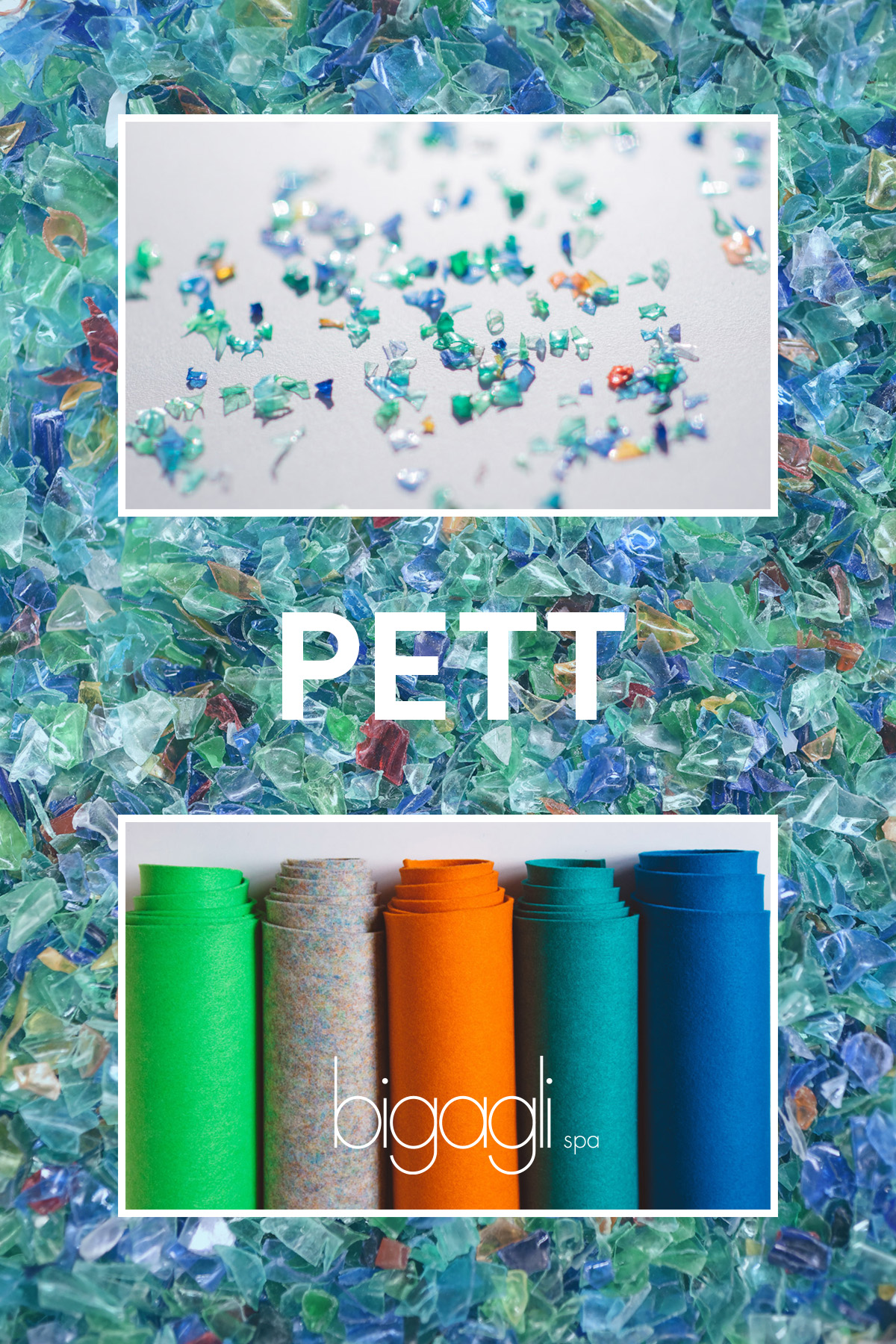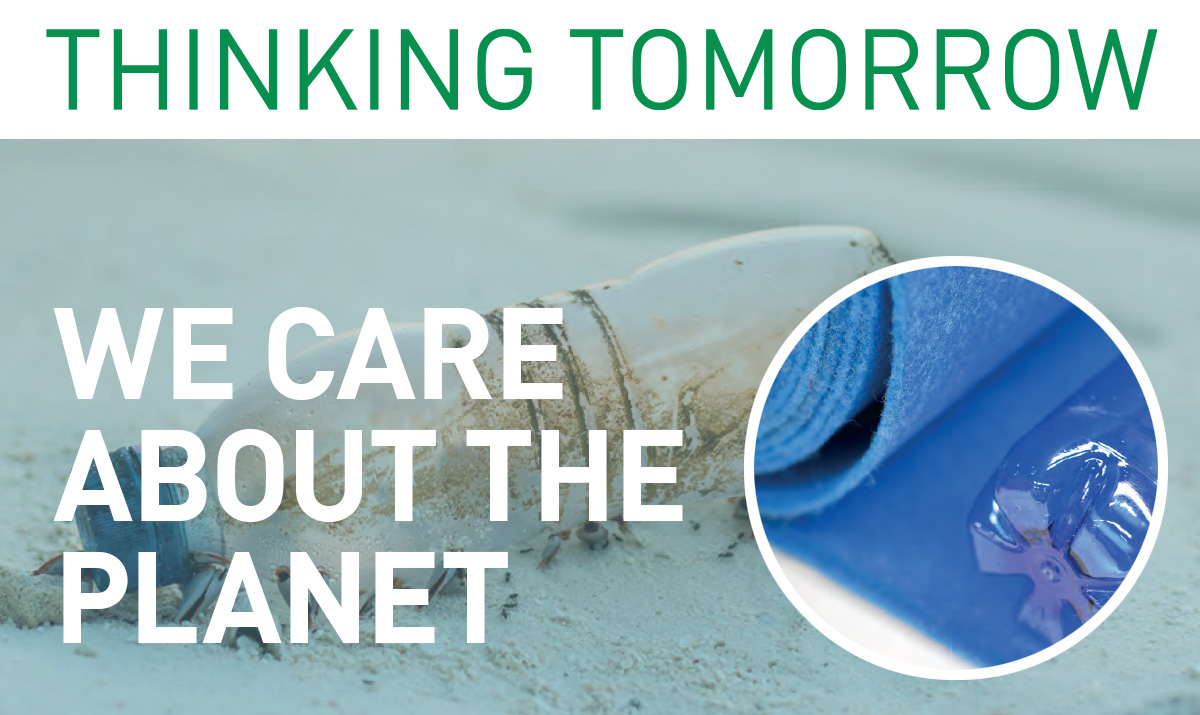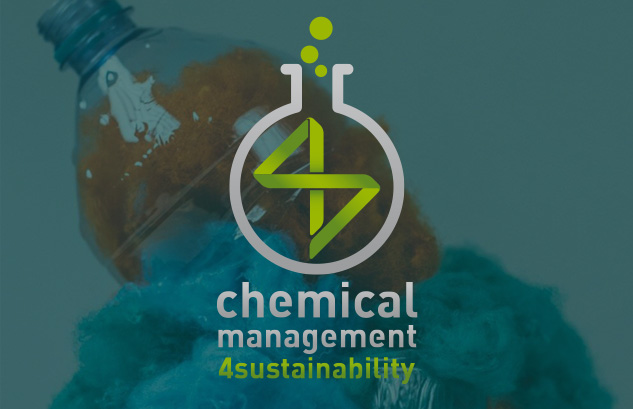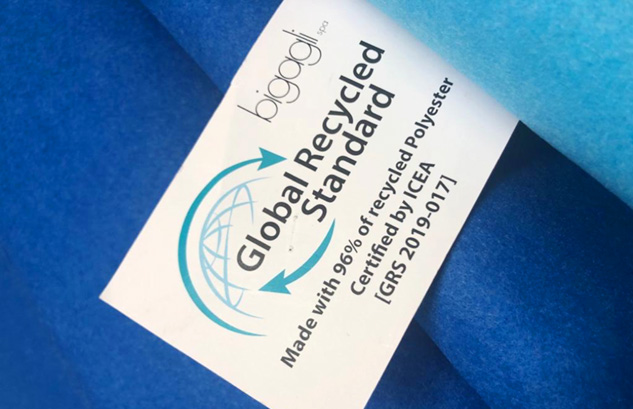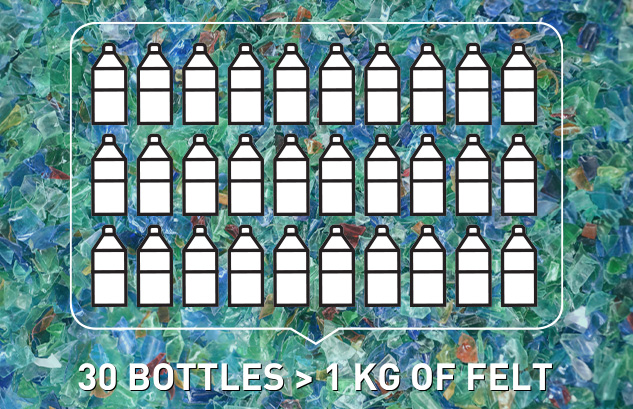
From waste to new resource: PET bottles become fibres.
The process begins by separating household plastic. PET is separated straightaway from metals and other bottles. Coloured PET is separated from transparent PET. The following steps are washing, grinding, drying, extrusion, dyeing, carding preparation and needling & heat setting.

